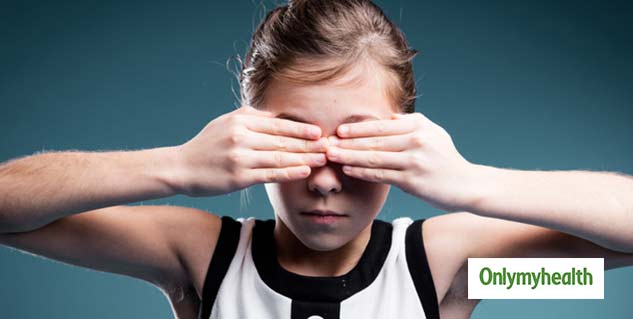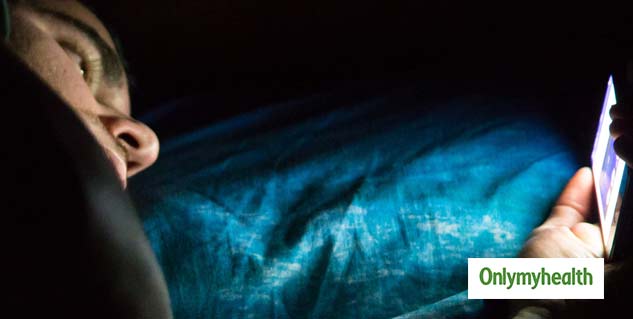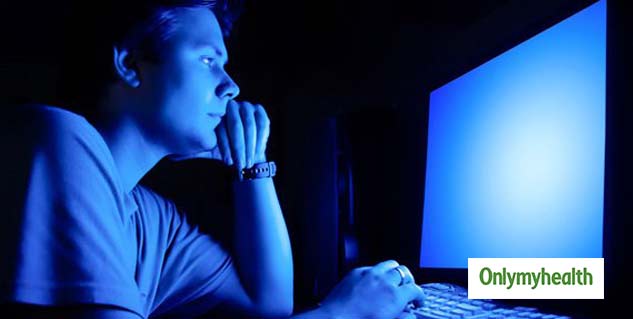
Recent research published by the University of Toledo in the US has captured the imagination of smartphone users and ophthalmologists worldwide. Several newspapers and health websites were quick with alarming banner headlines that suggested that blue light from smartphones, laptops and other digital devices damage vision and can cause blindness.
The research suggests that prolonged exposure to blue light which has a shorter wavelength and more energy compared to other colors can damage your vision. The damage to the macula, the light-sensitive part of the retina, is called macular degeneration. Exposure to blue light results in the generation of toxic chemical molecules within the photoreceptor cells which are light-sensitive cells in the retina.

Is my phone making me blind?
While there is definite merit in being careful when using smartphones, laptops and other screen devices, the panic generated by this study is largely unfounded.
In fact, the lead author of the study Ajith Karunarathne, PhD, was asked by The Verge whether his research showed that using electronic screens causes blindness, and he replied with a resounding, "Absolutely not."
This experiment does not reproduce real-life conditions, and the cells that were tested are not derived from human retina cells, and the research was carried out in rats. In addition to this, the study did not mimic real-life exposure to blue light from smartphones. The study, therefore, merely postulates how the damage may be mediated, and does not talk of blue light causing blindness at all.
Also read: Overusing smart phones can be bad for your hand
This, however, does not mean that smartphones do not affect the eyes adversely.
So, what are the real dangers of smartphone overuse?
There are real concerns about screen use and its harmful effects on the eye. Excessive smartphone use can damage your eyes in several ways, these include:
Strain, dry eyes and headaches
You may develop symptoms like blurred vision, dry eyes and headaches. This is because of the prolonged near effort, and because you tend to blink less when on a screen device. This means your eyes become dry, and the eye muscles become strained and go into spasm.
Sleep-wake disturbances
The blue light from smartphones is known to decrease the production of Melatonin, a hormone that regulates sleep. This is why the use of smartphones at night can disturb your sleep pattern and result in sleep-wake disturbances.

Anxiety and stress
Psychologists believe that the indiscriminate use of smartphones can result in a higher risk of depression, anxiety and insomnia, especially among teenagers.
Also read: Eat and beat stress: Here are some superfoods that can help you beat stress and anxiety
Cancer
Some scientists believe that smartphones may increase the incidents of certain head and neck tumours like gliomas, meningiomas and acoustic neuromas since they emit radio waves. There is not enough evidence to prove that smartphones can cause cancers and tumours, but still, experts advise caution, particularly in children.
How can we prevent the smartphone induced damage to the eyes?
Restrict the use of smartphones
It is important to cut down on the screen time. Remember, the time spent with any screen device, be it a phone, television, Play Station, laptops and tablets all add up when it comes to causing eye strain.
Make sure you take regular breaks
Remember the 20:20:20 rule. Every twenty minutes, take a break for twenty seconds and close your eyes. Now, look at something at least 20 feet away to help relax your eyes. This will help relax your eyes and minimize the spasm of the convergence muscles.
Remember to blink

Staring at the screen reduces your blink rate to less than one-third of normal. The normal rate varies from 12 to 15 blinks per minute and is responsible for keeping the eyes well lubricated. When the blink rate is reduced, it results in dryness of the eyes as the tear film is not rejuvenated. Therefore, you must remember to blink more often when sitting in front of any screen device.
Check settings for contrast, brightness and font size
It is easiest to read black letters on a white background. A larger font size minimizes eye strain. In addition, avoid reading in the dark, and make sure the light does not reflect off your screen device, causing glare.
Also read: Have beautiful and healthy eyes with these 6 exercises
Use lubricating eye drops and tear supplements
You can ask your eye doctor to suggest preservative free lubricating eye drops. Since these eye drops are preservative free and do not contain any medication, you may use them as and when required.
Be regular with your eye check-up
You must get your eyes checked once a year, and make sure the power of your eyeglasses is up to date. This will help decrease the strain and fatigue from smartphone use.
In case the symptoms persist, you must see your doctor promptly. These include persistent eye strain and fatigue, dryness of eyes, frequent headaches and blurred vision.
Read more related articles on Eye Diseases.
For more related articles, download OnlymyHealth app.







